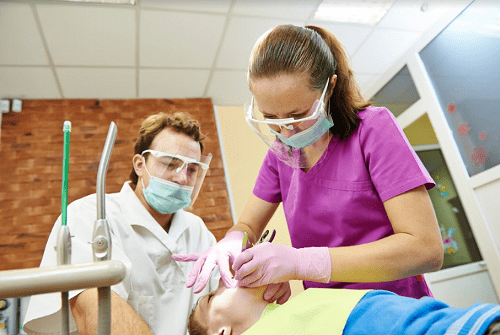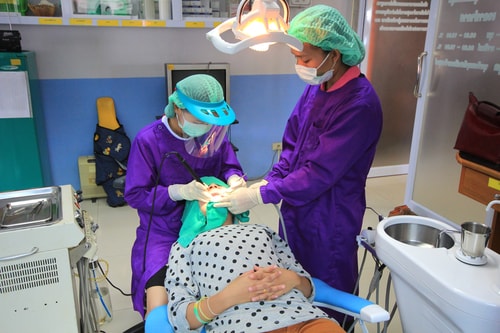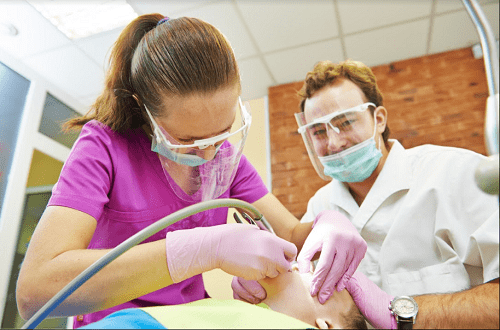
Some people hesitate to go to the dentist because of childhood bad experiences, or fear of pain. However, visits are much more comfortable than in the past, due to techniques like dental sedation. If you have a procedure scheduled to improve your oral health, read on about how sedation works.
Some methods used include:
- Nitrous Oxide – The dentist may recommend you breathe nitrous oxide through an mask over the nose. This method can calm you before a procedure, and help you relax throughout. The dentist (or assistant) can adjust how much gas you receive through the mask. The gas wears off fairly quickly, so you are able to drive yourself home afterward. This is especially useful for young children undergoing drilling for cavities, since it helps them remain calm.
- Oral – In some cases, your dentist will recommend a pill that can keep you drowsy during a procedure. The drug is usually taken an hour beforehand. If you are particularly nervous, you can take one the night prior to seeing the dentist. Oral sedation can make you calm enough to fall asleep, but it is possible to be awakened with a light shake.
Here are some tips regarding what to do before and after having to be sedated.

Before:
- Avoid Eating – You may be allowed to take a few sips of clear liquid prior to the procedure. Avoiding consumption of food or beverages prior to sedation is necessary to prevent some side-effects like nausea or dizziness.
- Avoid Taking Medication – If you are taking medication, discuss this with both your general physician and dentist to avoid any complications with the sedative. Be sure to inform the dental staff of the medication(s) you take so they can prepare appropriately.
- Bring an Escort – This is most important in the case of children, as having a hand to hold (and supportive words) can make a huge difference for their experience. Adults may also need a friend or family member to drive them home after the procedure.
- Wear Comfortable Clothes – Choose loose, comfortable clothes so you can relax in the chair. Avoid wearing hair pins and barrettes that might poke your head while you’re lying down.

After:
- Avoid Strenuous Activity – When you get home, rest. To ease your recovery, postpone any strenuous activities. The remaining anaesthesia in your system can impair your judgment, so avoid making important decisions as well.
- Avoid Medication – Medication can still affect the remaining anaesthesia in your body, so follow post-procedure doctor’s orders. It is acceptable to take dentist-prescribed medication to help with your recovery.
- Avoid Alcohol – Alcohol is another substance that can adversely affect your recovery. This is especially true if you have any remaining anaesthesia in your system, which can lead to a fatal reaction.
Consider sedation dentistry to make any dental procedure easier. Contact Dr. Mark Rhody Dentistry at (416) 231-4281 to book an appointment with a qualified and caring clinic. We can put your mind at ease about having any dental work.
